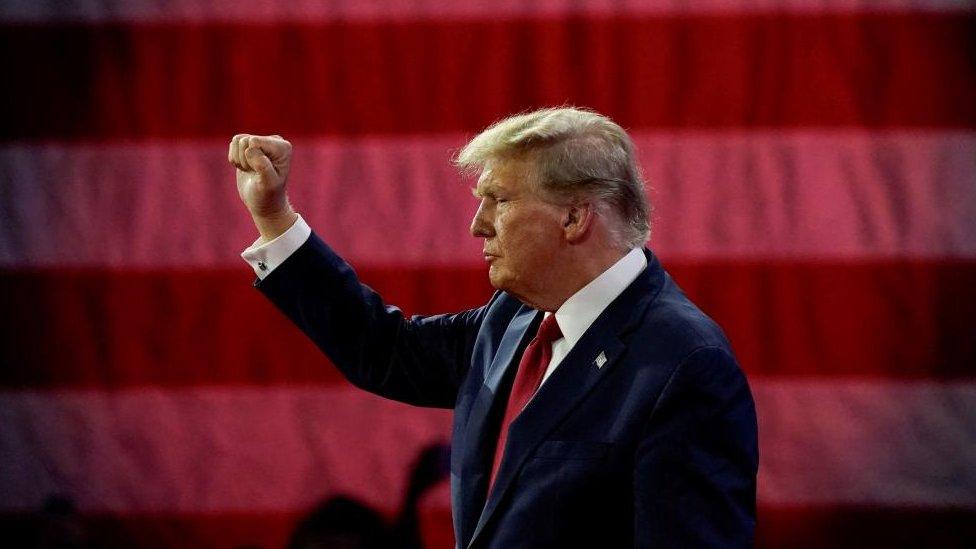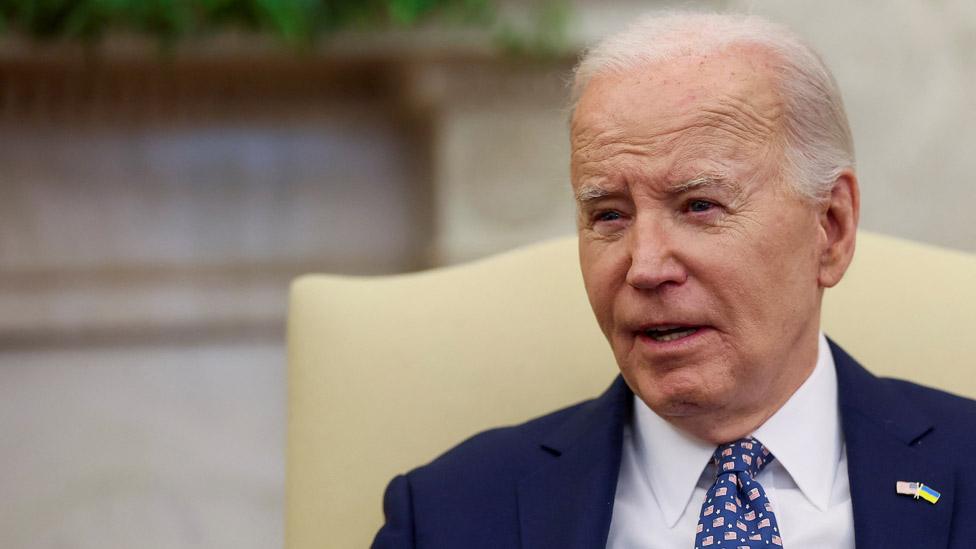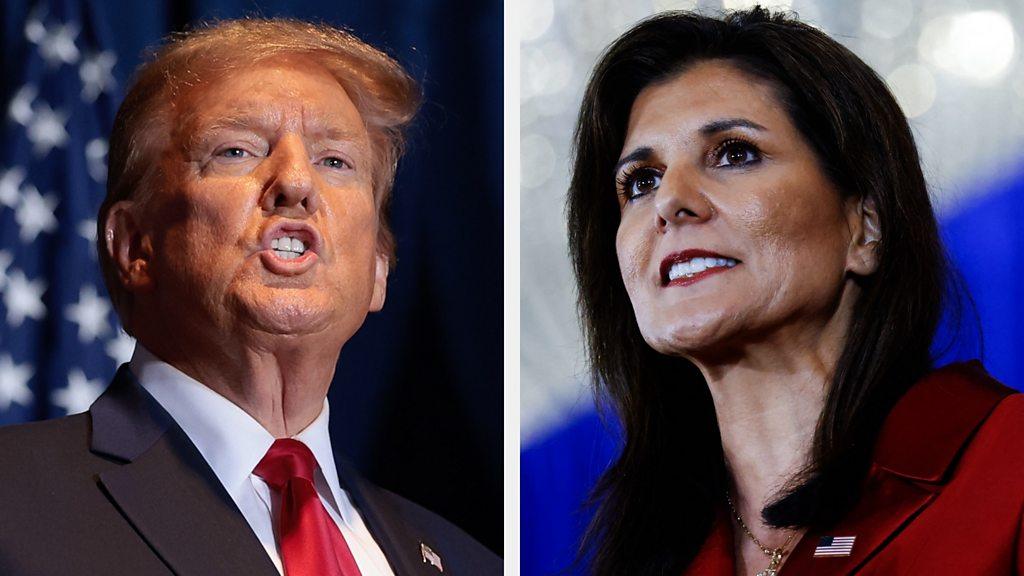Donald Trump easily wins Michigan primary over Nikki Haley
- Published

The former president pictured at the Conservative Political Action Conference (CPAC) annual meeting last week
Donald Trump has further cemented his status as frontrunner for the Republican presidential nomination with an easy win in the Michigan primary.
With practically all votes in, Mr Trump has won 68%, with Nikki Haley on 26%.
It was Ms Haley's sixth consecutive loss to Mr Trump in the contest to become the party's candidate for November's election.
She has vowed to keep fighting, saying Mr Trump cannot overcome Joe Biden in a presidential election.
But the White House race is increasingly looking likely to be a rematch between Mr Trump and President Joe Biden, a Democrat.
Mr Biden also won in Michigan despite a protest vote.
On Tuesday night, Mr Trump - who did not travel to Michigan for the ballot - said his campaign's margin of victory in the state was "greater than we even anticipated".
"We win Michigan, we win the whole thing," he added.
He also insisted that car workers, a major voting bloc in the state, "are with us".
Last month, the United Automobile Workers - representing 400,000 workers - endorsed the Democratic president's re-election bid, though the union's boss conceded in a media interview that "a great majority" of his members would not vote for Mr Biden.
John Ryan, a political scientist at the University of Michigan, said Mr Trump's victory in the state "was the largest in any contested Michigan Republican primary this century".
But he cautioned he has seen "nothing to suggest in any of the results or polls so far that he's winning over any new voters from 2020".
Mr Trump won Michigan by 11,000 votes in 2016 over Hillary Clinton, then lost the Midwestern state by nearly 154,000 votes to Mr Biden in 2020.
Despite her loss in the state, on Tuesday night Ms Haley told CNN: "We have a country to save."
But the former UN ambassador conceded "it is very possible" that the Republican party now represented Mr Trump's views rather than her own political outlook.
Larry Sabato, a political analyst at the University of Virginia, said the result was "below expectations" for Ms Haley, who had garnered a larger percentage of the vote in previous contests in South Carolina and New Hampshire.
Americans for Prosperity Action, a libertarian conservative organisation founded by the billionaire Koch brothers, announced after the South Carolina result last weekend that it would no longer spend on her campaign.
But in a statement, her campaign called the Michigan result, including the share of Republicans who did not vote for the former president, a "flashing warning sign for Trump in November".
Mr Sabato said it is too early to fully assess Michigan's primary but he noted that polling "continued to show a sizeable chunk of her voters say they will not vote for Trump in November".
Whether that will last nine more months in America's partisan political climate remained to be seen, he said.
A candidate can become the Republican nominee by accruing 1,215 delegates by victories in state level primaries, caucuses and conventions.
A majority of delegates in Michigan are due to be awarded on Saturday, when the state's party holds a convention. Only 16 are determined by the primary vote.
Still more delegates will be up for grabs by the candidates of both parties during Super Tuesday - when several states hold their primaries - next week.
Mr Biden is largely uncontested in his bid for the Democratic nomination.
Even though he won the Michigan primary easily, thousands of people voted "uncommitted" in the Democratic contest, following a call by activists to send a protest vote over the White House's support for Israel during the war in Gaza.
- Published28 February 2024

- Published25 February 2024
